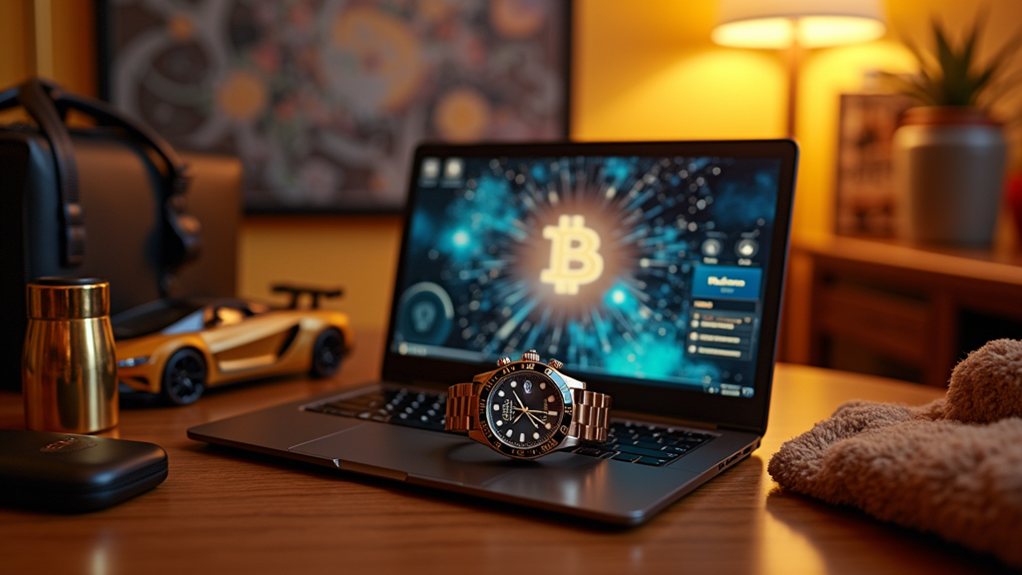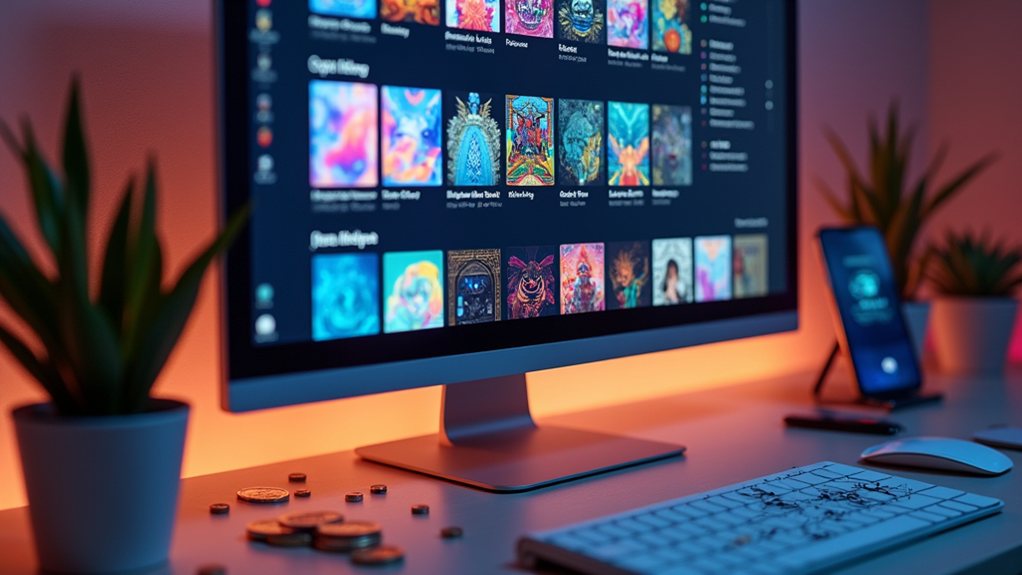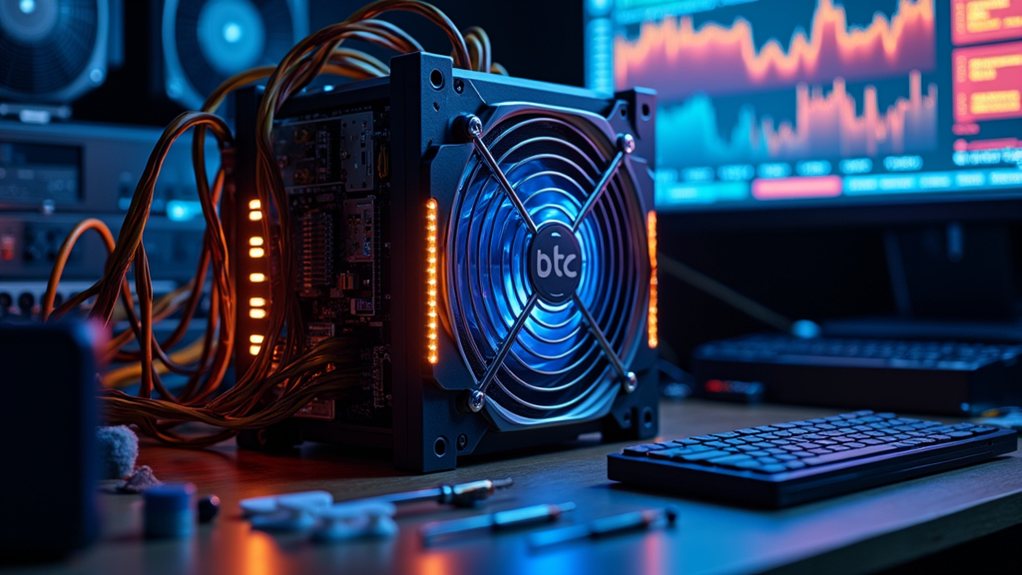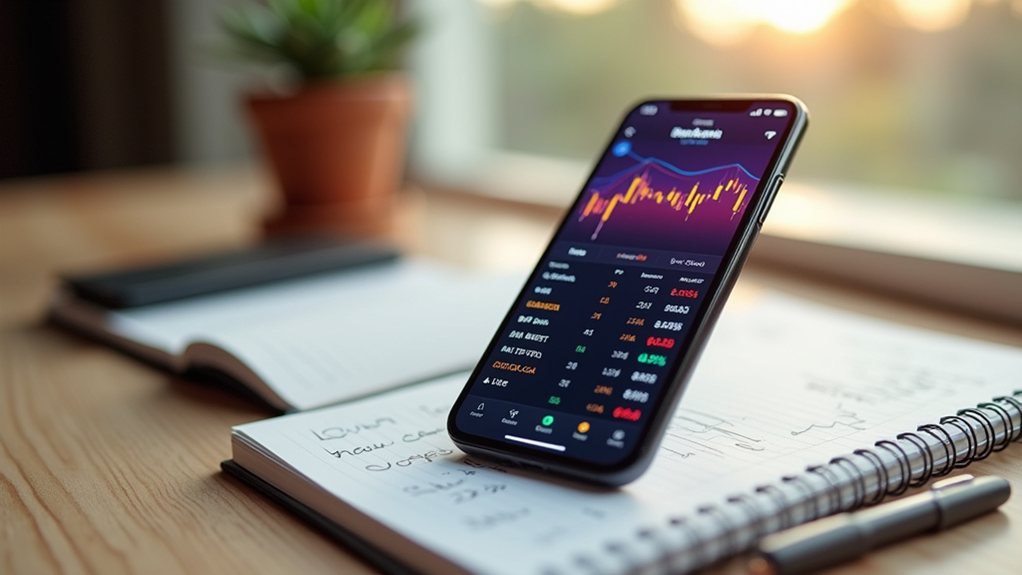Today's Bitcoin enthusiasts can splurge on luxury watches from Rolex and TAG Heuer, adding an exclusive crypto twist to timekeeping. Tech lovers enjoy shopping at Newegg for gaming PCs and gadgets without traditional currency hassles. For the adventurous, travel platforms like Expedia and CheapAir make booking dream vacations with digital currency simple and borderless. Bitcoin's real-world acceptance is transforming how people shop for high-end items. The cryptocurrency revolution extends far beyond these options.
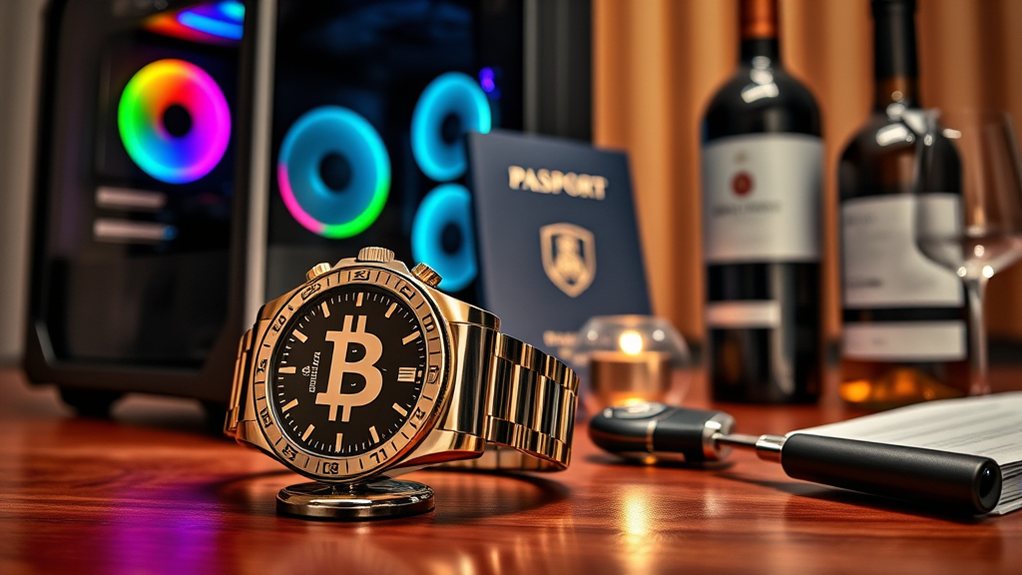
While Bitcoin's price continues its rollercoaster journey, crypto enthusiasts are finding more ways to actually spend their digital wealth. Gone are the days when Bitcoin was just for tech geeks and dark web transactions. Now? You can buy stuff. Real stuff. Fancy stuff.
Want a shiny new Rolex? Flash your crypto wallet. Several luxury watchmakers including Rolex, Hublot, and TAG Heuer now accept Bitcoin payments. BitDials specializes exclusively in luxury timepieces for crypto. Some Swiss watchmakers have even released Bitcoin-themed models. The watch appreciates while Bitcoin depreciates. Or vice versa. Who knows anymore? Using Bitcoin adds an extra layer of exclusivity to these luxury watch purchases.
Tech nerds rejoice. Newegg takes your Bitcoin for that gaming PC you've been eyeing. Microsoft Store wants your digital coins for games and software. Need a new fridge? Overstock will swap your crypto for appliances. AT&T even lets you pay your phone bill with Bitcoin. Revolutionary stuff, really.
Travel enthusiasts aren't left out of the crypto party. Expedia partnered with Coinbase so you can book that overpriced vacation with your digital fortune. CheapAir takes Bitcoin for flights, hotels, and rental cars. Travala.com built their entire business model around crypto travel bookings. There's even BitLux for private jet charters. Because nothing says "crypto millionaire" like paying for a private jet with Bitcoin. Fast Private Jet and LunaJets offer luxury charter flights with cryptocurrency payments. The decentralized nature of cryptocurrencies makes cross-border payments particularly convenient for international travelers.
Real estate developers jumped on the bandwagon too. Propy facilitates property transactions with Bitcoin. Someone actually paid $22.5 million in crypto for a Miami penthouse. Dubai developers are selling apartments for Bitcoin. Some mortgage lenders are exploring crypto payments. Housing bubble, meet crypto bubble.
Car enthusiasts can drive their dreams home with Bitcoin. Tesla briefly accepted it before Musk changed his mind. Again. Lamborghini dealerships take cryptocurrency because of course they do. BitCars specializes in luxury auto sales for Bitcoin. Yacht brokers are getting in on it too. Classic car auctions with crypto bidding. The future is now.
Even foodies can spend Bitcoin. Some Subway franchises take it. Whole Foods indirectly accepts Bitcoin via Flexa. Wine retailers like Acker want your crypto. Michelin-starred restaurants are serving meals for Bitcoin. Gourmet food delivery with cryptocurrency? It's happening.
Art collectors aren't left out. Christie's auction house takes cryptocurrency. NFTs are everywhere. Sotheby's created a Metaverse platform for crypto art sales. Physical artwork for Bitcoin? Available at select galleries. Sports memorabilia marketplaces are exploring crypto payments too.
Bitcoin. It's not just for HODLing anymore.
Frequently Asked Questions
Is Bitcoin a Secure Payment Method for Online Purchases?
Bitcoin offers strong security for online purchases. Its blockchain technology prevents fraud through decentralization and cryptographic protection.
Transactions are irreversible—good for merchants, potentially problematic for buyers. No personal data required, unlike credit cards.
Pretty hard to hack. Still, user security practices matter enormously. Hardware wallets and two-factor authentication make a difference.
Bottom line: secure payment method, but only as safe as the person using it.
Can I Get a Refund for Bitcoin Purchases?
Getting refunds for Bitcoin purchases isn't straightforward. Unlike credit cards, Bitcoin has no chargeback mechanism—transactions are irreversible on the blockchain.
Refunds happen only if merchants agree. Companies like Overstock offer store credit, while Microsoft refunds to original wallets.
Third-party services like BitPay can facilitate the process. But here's the kicker: consumer protections for crypto are still evolving.
No guarantees. The merchant holds all the cards.
How Do I Set up a Bitcoin Wallet?
Setting up a Bitcoin wallet isn't rocket science.
First, choose a wallet type—software for convenience, hardware for security. Download from official sources only.
Create your wallet, then immediately write down that recovery phrase somewhere safe—not on your computer. Strong password, check. Two-factor authentication, absolutely.
Start small to test the waters. Updates matter.
Security isn't optional with crypto. Everyone gets hacked eventually. Be paranoid.
Does Bitcoin Price Volatility Affect My Purchases?
Bitcoin's price volatility absolutely affects purchases.
When Bitcoin jumps 10% in a day, so does your purchasing power. One minute you're buying a laptop, the next it's either a desktop or just a keyboard.
Smart merchants use payment processors that convert Bitcoin instantly. Others update prices constantly. Some even build in "volatility buffers."
It's the wild west of currencies. Not for the faint of heart.
Are There Transaction Fees When Spending Bitcoin?
Yes, transaction fees are inescapable when spending Bitcoin.
They're paid to miners who process transactions, and they fluctuate wildly based on network congestion. Fees range from a few cents to several dollars per transaction. Higher fees? Faster confirmation.
Some merchants absorb these costs, others pass them to customers. For small purchases, fees can be ridiculous during busy periods.
The Lightning Network helps with micro-transactions, though. It's just part of the Bitcoin game.

